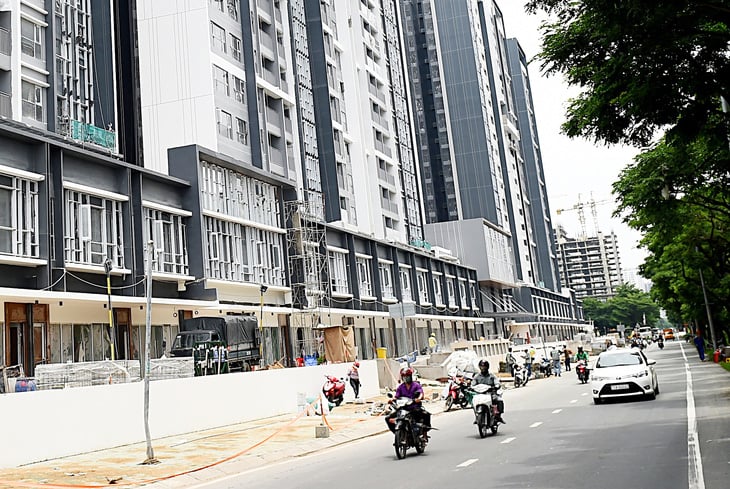
Commercial high-rise building under construction on Nguyen Huu Tho Street, Nha Be District, Ho Chi Minh City – Photo: TU TRUNG
The Land Law and Housing Law stipulate that the condition for Vietnamese people residing abroad (overseas Vietnamese) to receive, donate, or transfer real estate is to be able to enter Vietnam. To carry out these procedures, overseas Vietnamese must have all relevant identification documents such as documents proving Vietnamese nationality, being of Vietnamese origin, etc.
Land Law: Overseas Vietnamese have the same rights as domestic citizens
The 2024 Land Law stipulates that land users with overseas Vietnamese are Vietnamese citizens and people of Vietnamese origin residing abroad. These two groups of people have different rights in land use and home ownership in Vietnam.
Accordingly, Vietnamese people residing abroad are Vietnamese citizens (i.e. people who still have Vietnamese nationality), and are entitled to exercise all rights and obligations related to land as individuals in the country (Clause 3, Article 4 of the 2024 Land Law). These are the rights to be allocated land by the State, lease land, recognize land use rights, be granted certificates, receive land use rights, sublease land, convert, transfer, lease, sublease, inherit, donate, mortgage, and contribute capital with land use rights.
Thus, Vietnamese people residing abroad with Vietnamese nationality can directly buy houses and land like Vietnamese citizens in the country instead of being restricted to certain rights as stipulated in the 2013 Land Law. The Law also unifies the general term "individual" for both domestic individuals and Vietnamese people residing abroad who are Vietnamese citizens. Thus, the rights and obligations of individuals using land including: domestic individuals and Vietnamese people residing abroad who are Vietnamese citizens are equal.
Article 3 of Decree 95/2024 guiding the Housing Law stipulates the types of documents proving that individuals are allowed to own houses in Vietnam, stipulating that Vietnamese citizens must have an identity card, Vietnamese passport or other documents proving Vietnamese nationality. To own a house, Vietnamese people residing abroad who are Vietnamese citizens must have a valid Vietnamese passport with an entry stamp into Vietnam at the time of establishing a house.
When notarizing house sale and purchase contracts and land use rights transfer contracts at notary organizations and registering name changes at land registration office branches, overseas Vietnamese who are Vietnamese citizens must have documents proving that they have Vietnamese nationality and are eligible to own houses as above.
Expanding rights for Vietnamese people residing abroad
Clause 1, Article 44 of the 2024 Land Law stipulates: “Overseas Vietnamese who are allowed to enter Vietnam are allowed to own houses attached to land use rights in Vietnam, and have land use rights through the transfer of land use rights in housing development projects”.
When carrying out procedures to own a house in Vietnam, people of Vietnamese origin residing abroad must have a foreign passport or a valid international travel document according to the law on entry and exit and a document confirming that they are of Vietnamese origin according to the law on nationality. The agency issuing the document confirming that they are of Vietnamese origin is the Department of Justice or the diplomatic representative agency of Vietnam where the person of Vietnamese origin resides at the time of application submission or the State Committee for Overseas Vietnamese under the Ministry of Foreign Affairs.
To prove the eligibility for home ownership, Vietnamese people residing abroad must have a valid passport with an entry stamp to Vietnam or an international travel document with an entry stamp to Vietnam at the time of signing the housing transaction. When meeting all of the above conditions, Vietnamese people residing abroad are entitled to the rights to houses and land according to the provisions of law.

Real estate project under construction in District 7, Ho Chi Minh City – Photo: Q. DINH
What is the procedure?
According to Major Tran Duy Hien - Deputy Director of the National Population Data Center (Department of Administrative Police for Social Order - C06, Ministry of Public Security), in principle, overseas Vietnamese who want to apply for an ID card must still have or still have Vietnamese nationality and must determine their place of residence.
The Ministry of Public Security is currently proposing to amend Decree 62 on confirming the place of residence of citizens (to distinguish between permanent residence, temporary residence and current residence). From there, the authorities will have procedures for registering the current place of residence to get information printed on the ID card, and issue ID cards to overseas Vietnamese.
Lawyer Tran Thi Thanh Lam, Hanoi Bar Association, said that regarding overseas Vietnamese, or commonly known as overseas Vietnamese, there will be two groups of people recognized by the 2024 Land Law to be granted land use right certificates when they meet the conditions. These are “overseas Vietnamese who are Vietnamese citizens” and “people of Vietnamese origin residing abroad”. However, to prove that they are of Vietnamese origin, they need to have personal documents, which can be a citizen identification card. The Vietnamese Nationality Law also stipulates that people with Vietnamese nationality are Vietnamese citizens.
According to Article 19 of the 2023 Law on Identification, effective from July 1, 2024, the person who is granted an ID card is a Vietnamese citizen. Thus, if an overseas Vietnamese still holds Vietnamese nationality and is 14 years of age or older, he or she is eligible for an ID card. In case an overseas Vietnamese still holds Vietnamese nationality and is under 14 years of age and has a need, he or she will still be granted an ID card.
The procedure for granting citizen identification cards is stipulated in Article 21 of Decree 70 guiding the Law on Identification as follows:
Citizens come to the identity management agency (identity management agency of the district, county, town, city police... where the citizen resides or the identity management agency of the Ministry of Public Security) to request issuance, exchange, or re-issuance of an identity card, providing information including: last name, middle name and birth name, personal identification number, place of residence for the recipient to check and compare information in the National Population Database.
– In case the citizen's information in the National Population Database is not available or is incorrect, the recipient shall adjust the information according to regulations before requesting to issue, change or reissue the ID card.
– In case the citizen's information is correct, the person receiving the request for issuance, exchange, or re-issuance of an ID card shall extract information about the citizen from the National Population Database. After determining that the information of the person requesting the issuance, exchange, or re-issuance of an ID card is correct, the person shall carry out the procedures for issuing an ID card according to the provisions of Article 23 of the Law on Identification.
Procedures for issuing ID cards through the National Public Service Portal, the Ministry of Public Security's Public Service Portal, and the national identification application: Citizens select a procedure and check their information in the National Population Database. If the information is correct, register the time and the ID management agency to carry out the procedure. The system will confirm and automatically forward the citizen's request to the ID management agency where the citizen requests to issue, change, or reissue the ID card.
Citizens come to the identification management agency at the registered time and place to carry out procedures for issuing, exchanging, and reissuing identification cards according to the prescribed procedures and order as for issuing identification cards at the identification management agency.
Documents required to be granted a certificate of Vietnamese origin
According to Clause 1, Article 33 of Decree 16/2020/ND-CP, the application for a certificate of Vietnamese origin includes: an application form according to the prescribed form, accompanied by two 4×6 photos taken within the last six months and copies of the following documents:
– Personal documents (ID card, citizen identification card, residence permit, temporary residence card, passport, international travel document or personal identification document with photo issued by a competent authority).
– Documents previously issued to prove that the person once had Vietnamese nationality or documents to prove that at birth the person had parents or paternal or maternal grandparents who once had Vietnamese nationality.
– In case there is no such document , depending on the specific circumstances, one can submit a copy of the personal identity, nationality, and household registration documents issued by the old regime in the South before April 30, 1975; documents issued by the old government in Hanoi from 1911 to 1956; a guarantee letter from the Overseas Vietnamese Association where the person is residing, confirming that the person is of Vietnamese origin; a guarantee letter from a person with Vietnamese nationality, confirming that the person is of Vietnamese origin; documents issued by a competent authority of a foreign country stating Vietnamese nationality or nationality of Vietnamese origin.
– Time for issuance of certificate: within five working days from the date of receipt of the application, the agency receiving the application is responsible for reviewing and checking the information in the application, comparing it with the database and documents related to nationality to decide whether or not to issue a certificate of Vietnamese origin. If there is no basis for issuing the above certificate, the applicant shall be notified.

There was trouble proving identity.
Mr. NTH is a Vietnamese expatriate who came to the US as a child and has US citizenship. Recently, Mr. H. returned to his hometown in Tan Uyen (Binh Duong) to receive a house and land gift from his parents. Mr. H. still has his birth certificate, proving that he still has Vietnamese citizenship.
However, when he went to notarize the gift contract, there was a discrepancy between his name in the passport and his birth certificate. The reason was that his American name was different from the name on the birth certificate. Mr. H. was instructed by the notary to carry out the procedure to prove and confirm that Mr. H. in the birth certificate and passport was the same person, otherwise the related procedures could not be carried out.
Mr. H. went to the local civil status management agency to carry out the procedure of confirming personal information, but the authorities also seemed confused. A knowledgeable acquaintance instructed Mr. H. to contact the consulate or civil status management agency in the US to carry out the above confirmation.
The case of Ms. LTT, an overseas Vietnamese, also encountered issues related to personal documents. Ms. T. initially had a household registration in District 1 (HCMC), but when she got married, her household registration was moved to District 3. After that, she and her husband immigrated to the US and were granted US citizenship. During their time living in the US, they divorced. Recently, Ms. T. returned to Vietnam and wanted to sell a part of the land she had previously purchased to buy elsewhere.
Contacting the notary office to ask about the procedure, the consultant told her that because the civil status management agency in Vietnam still recorded her as having a marital relationship, Ms. T. should have a confirmation of her marital status if she wanted to sell the land alone. Specifically, Ms. T. must bring the divorce judgment of the competent authority in the US to carry out consular legalization.
“In addition, if I want to own a house in Vietnam, I must have an ID card, passport or other documents that prove Vietnamese nationality. While I only have an old ID card, I was instructed to change it to an ID card…”, Ms. T. said.
Tuoitre.vn
Source: https://tuoitre.vn/luat-da-mo-kieu-bao-muon-mua-nha-dat-o-viet-nam-can-chuan-bi-gi-20240825085231873.htm


![[Photo] National Assembly Chairman Tran Thanh Man attends the Party Congress of the Committee for Culture and Social Affairs](https://vphoto.vietnam.vn/thumb/1200x675/vietnam/resource/IMAGE/2025/5/11/f5ed02beb9404bca998a08b34ef255a6)





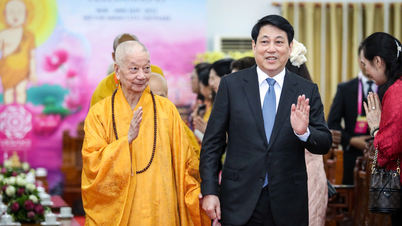



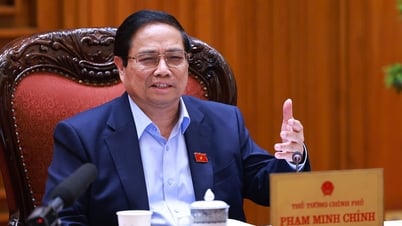

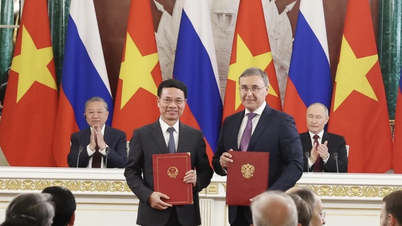
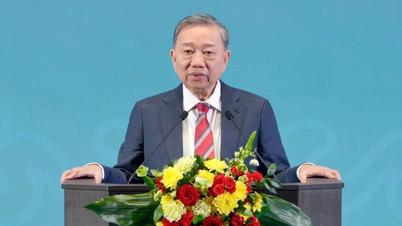


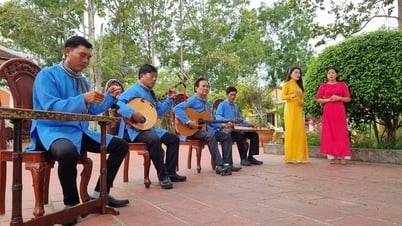
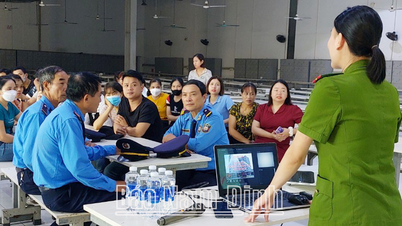

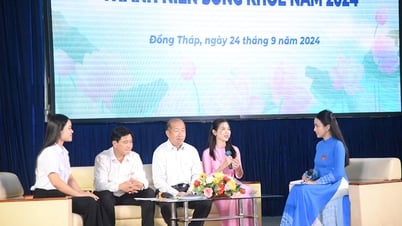
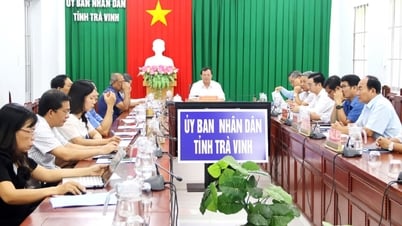
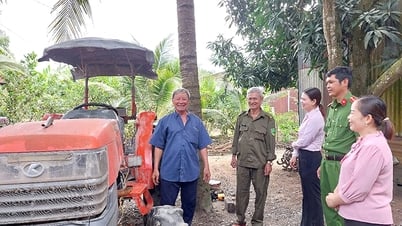





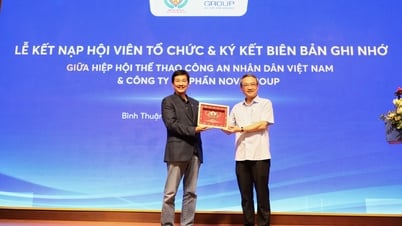




![[Photo] Discover the beautiful scenery of Wulingyuan in Zhangjiajie, China](https://vphoto.vietnam.vn/thumb/1200x675/vietnam/resource/IMAGE/2025/5/11/1207318fb0b0467fb0f5ea4869da5517)
![[Photo] National Assembly Chairman works with leaders of Can Tho city, Hau Giang and Soc Trang provinces](https://vphoto.vietnam.vn/thumb/1200x675/vietnam/resource/IMAGE/2025/5/11/c40b0aead4bd43c8ba1f48d2de40720e)











































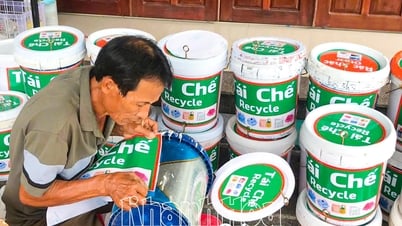

















Comment (0)